Today we have a fun little article. We wanted to see if the overclocking moniker has an appreciable impact on the performance of a GPU for AI and GPU compute applications. About a year and a half ago, we reviewed the Zotac GeForce RTX 3090 Trinity 24GB, without the “OC”. While we are awaiting new GPUs, we also need GPUs to use for a few projects in the meantime. As a result, we now have an “OC” edition and wanted to see if it was a worthwhile upgrade.
Zotac GeForce RTX 3090 Trinity OC 24GB Hardware Overview
The RTX 3090 Trinity OC 24GB is a custom-cooled NVIDIA GPU. It uses three fans, hence the “Trinity” name. The OC means that there is an overclock, which we will show the impact of later.
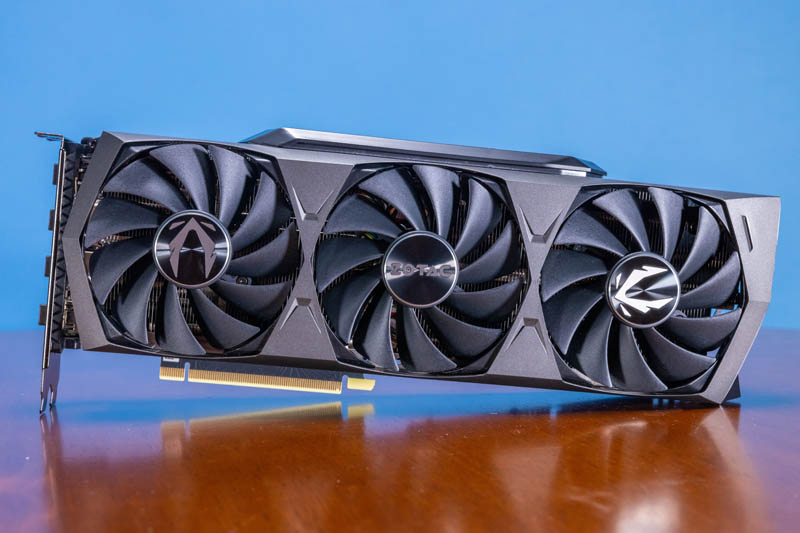
Again, if this seems like it is familiar, here is the original non-OC version from William’s review about a year and a half ago:
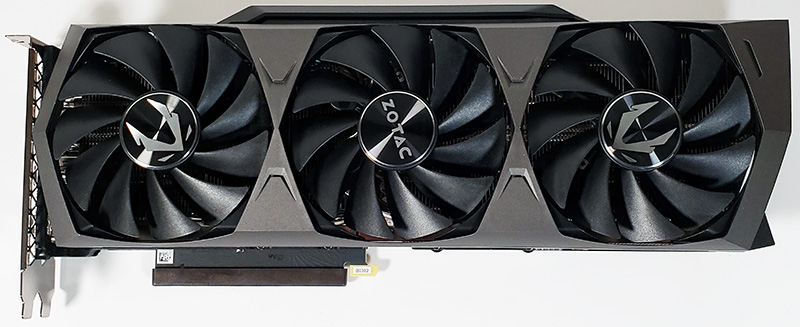
In terms of display outputs, we get three DisplayPort and one HDMI for four total. Part of the appeal of the GeForce RTX 3090 is that it can drive all four displays.
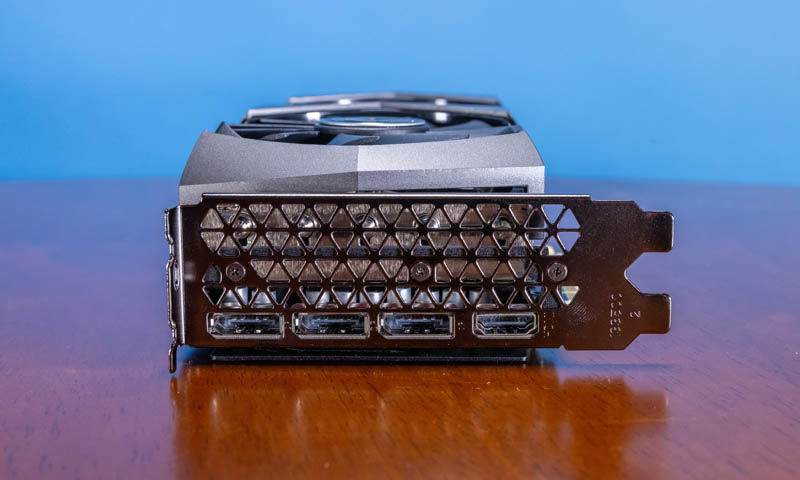
Unlike many of the server GPUs we review, these have airflow directed up and down via the heatpipe heatsink assembly. One can see just how much cooling is dedicated to the GPU.
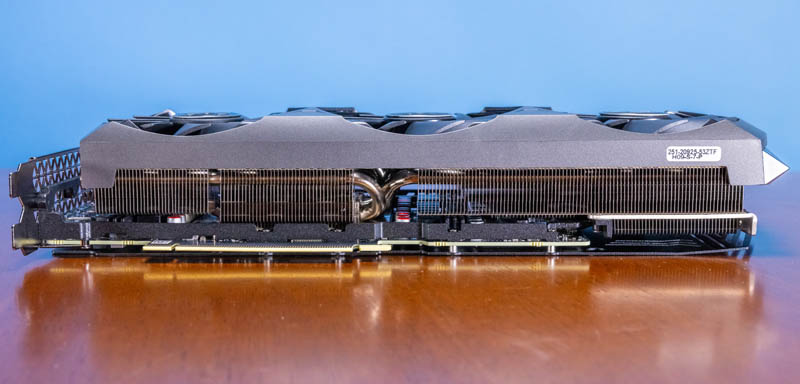
The interface with the host system is still a PCIe Gen4 x16 slot, just like we saw in previous RTX 3090’s.
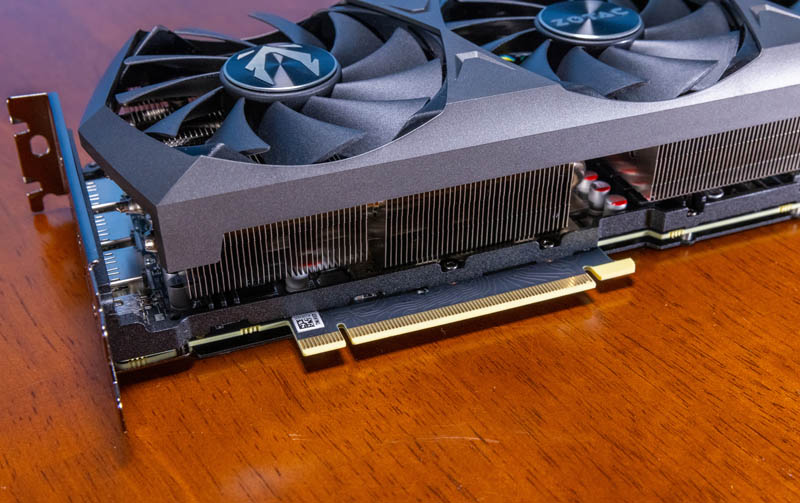
One of the nice features of the Zotac is that it has a rear faceplate. With modern $1000+ GPUs especially, we prefer to see these as they add some rigidity. GPUs these days are much larger and heavier than their predecessors.
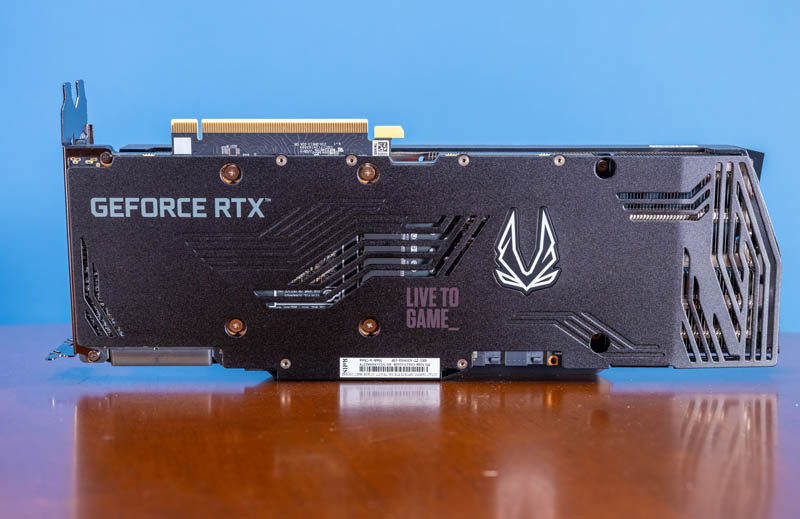
For some reference, here is the non-OC original in the old STH Blue Doors Studio. We actually had an entire series of white background and blue doors photos but ended up using the white background in the original non-OC review.
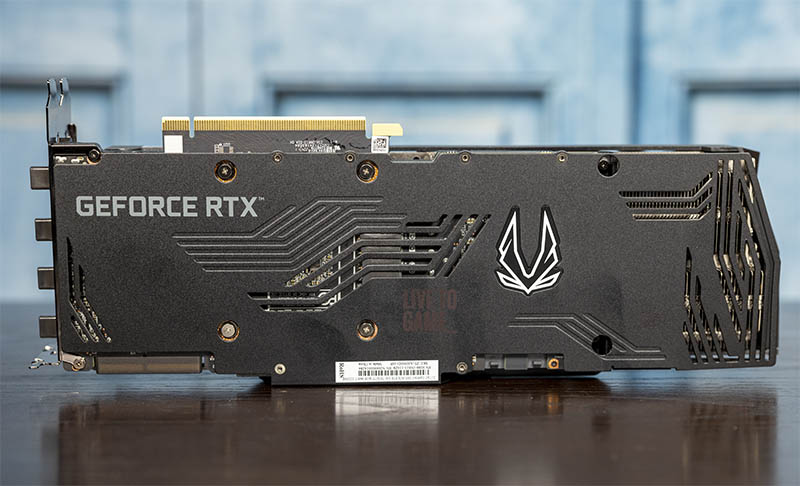
The top of the card has more ornamentation with “Zotac Gaming” and “Geforce RTX” all over.
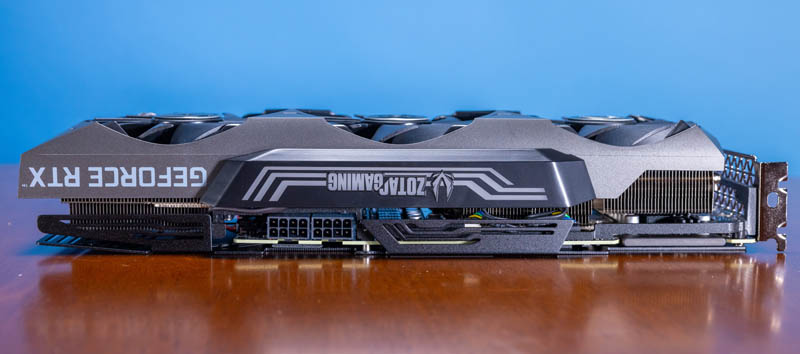
Perhaps the biggest top feature is power. We have two eight-pin power inputs.
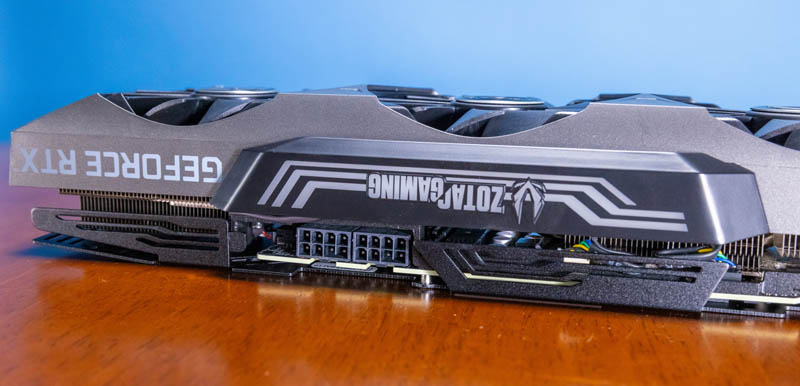
Unlike the RTX 3090 Ti as an example, these are not using the new PCIe Gen5 power inputs.
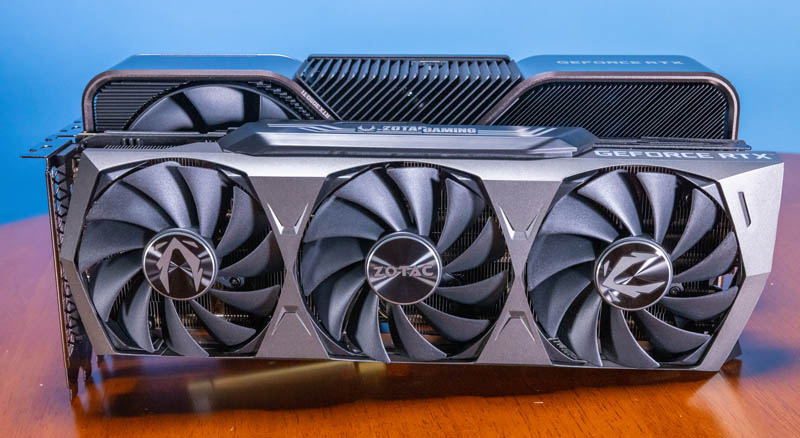
Zotac also provides two power adapters depending on your power supply.
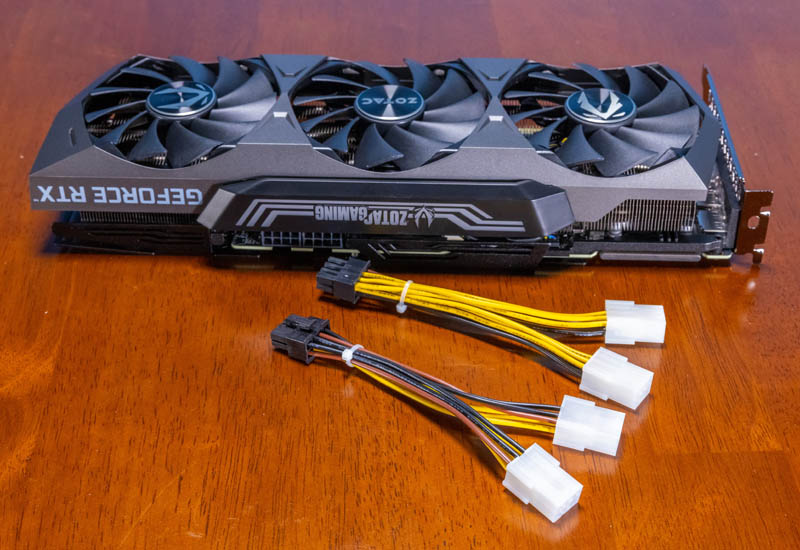
Hardware-wise, this is extremely similar to the non-OC version. The main difference is the OC and that is relatively minor as we will see next.

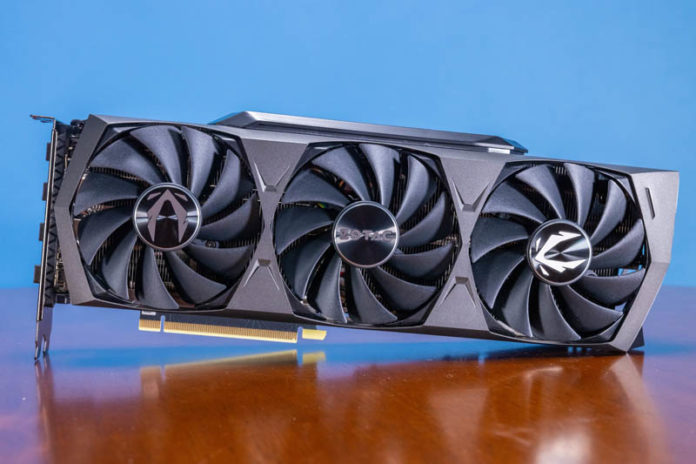

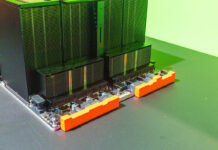

The news for me was that there weren’t any benchmarks where the OC version was slower, as that can actually happen with overclock settings under certain circumstances.